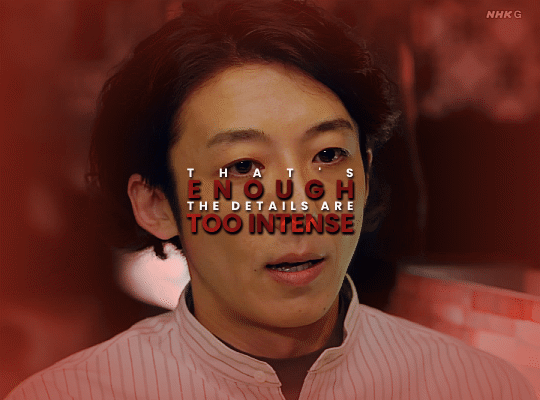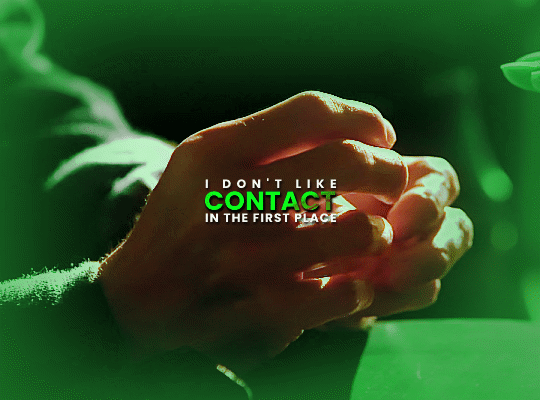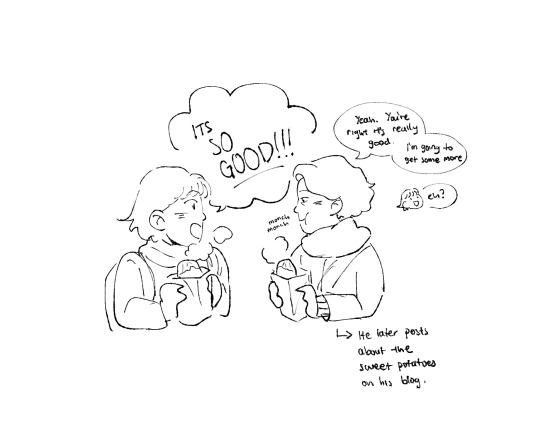Text
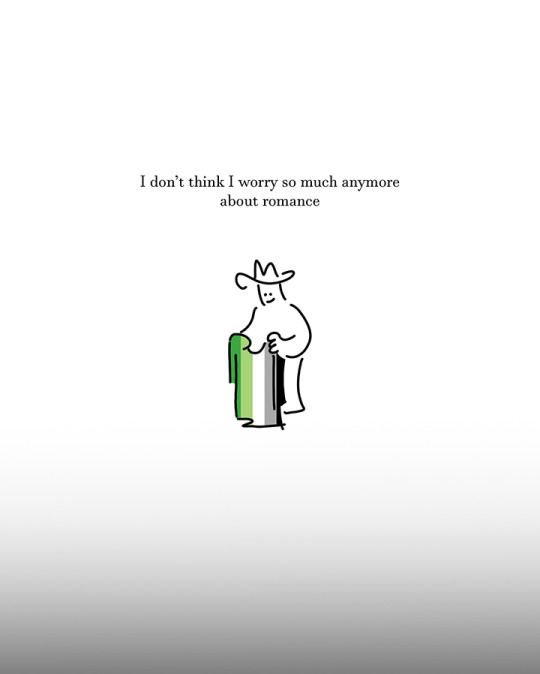
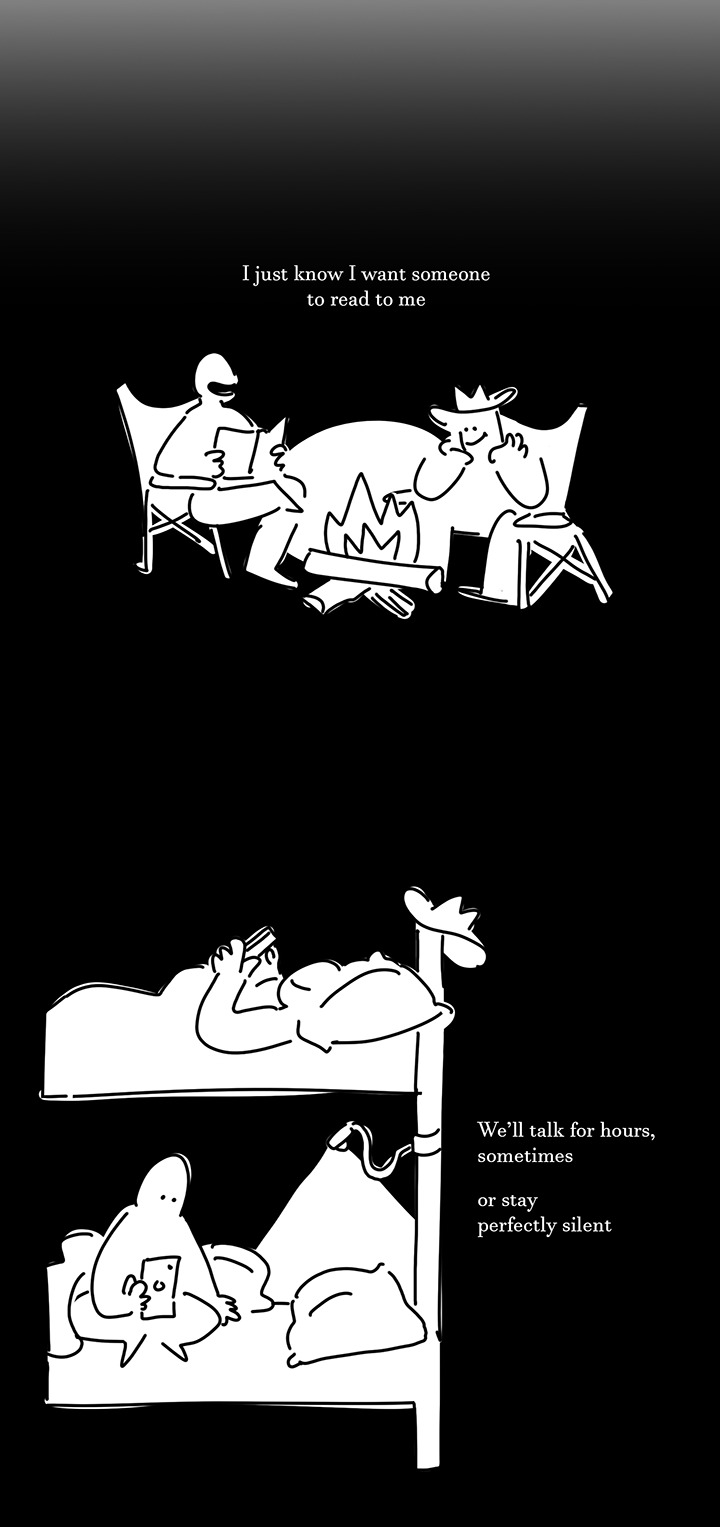
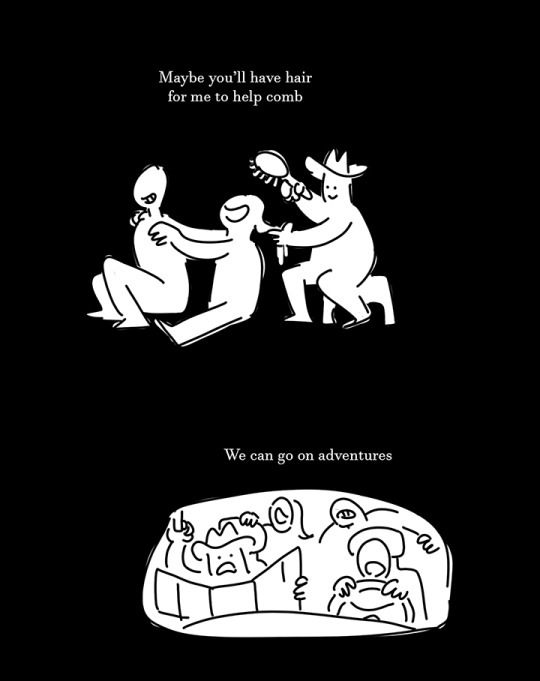
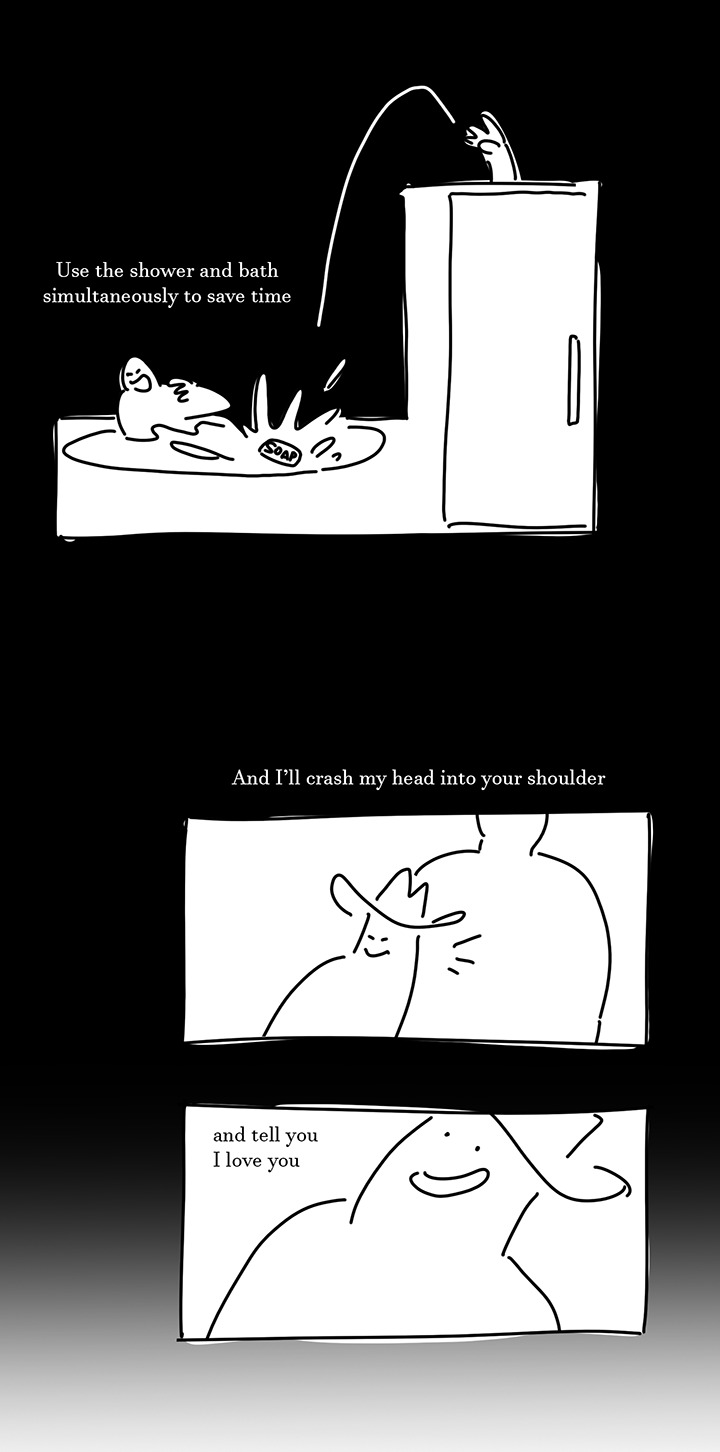

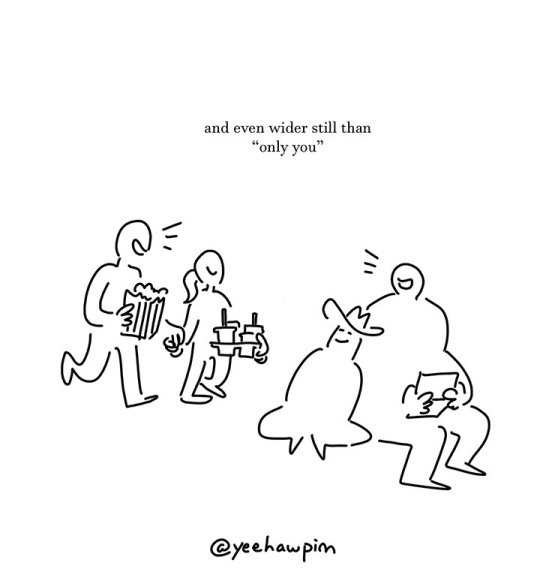
having a ponder about being aromantic and the kinds of friendships or qprs I might want to have
49K notes
·
View notes
Photo

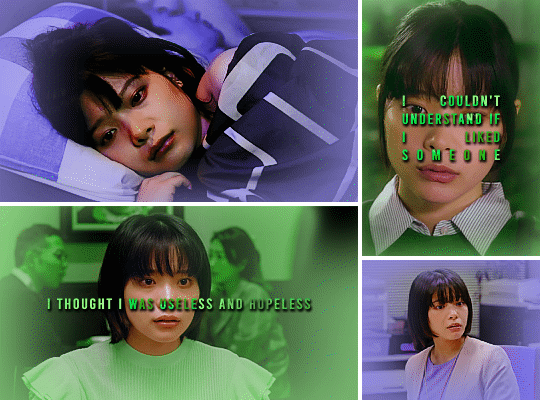
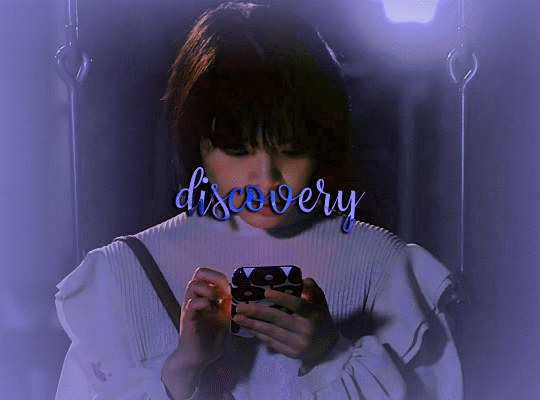




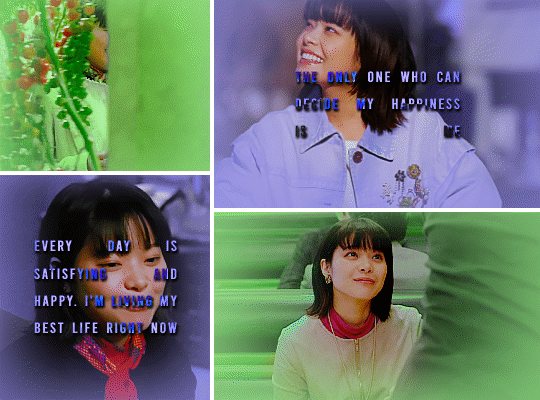
@userdramas event 04: love
— kodama sakuko’s self love journey in koisenu futari (in/sp)
203 notes
·
View notes
Photo







Japan just blessed us with another aromantic! Asano Tomoko, 1 of the 2 leads in Konya Sukiyaki Dayo. I love that it wasn’t just a one and done mention either, she’s brought it up multiple times in just the first 2 eps alone!
267 notes
·
View notes
Text
Koisenu futari is so real because I cannot guarantee how I'll act the day I meet a fellow aroace person in the wild but I honestly I can't rule out immediately asking them to be my family 😔
38 notes
·
View notes
Text
if you're looking for a warm show with aromantic and asexual adults that say they're aroace outloud and learn how to be a family w/out involving romantic feelings in a society that tells you such thing can't exist... koisenu futari is here for you!!!! 🥹💚💜
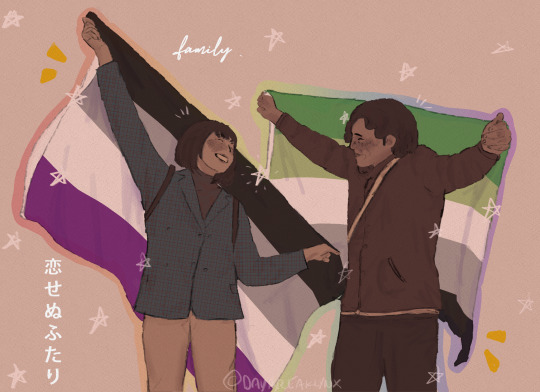
now on inprnt!
1K notes
·
View notes
Text
Asexual Non-Fiction
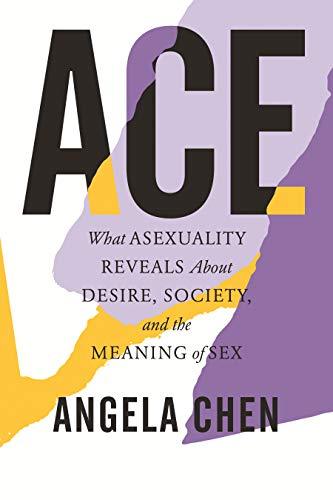

Ace: What Asexuality Reveals About Desire, Identity, and the Meaning of Sex by Angela Chen
An engaging exploration of what it means to be asexual in a world that's obsessed with sexual attraction, and what we can all learn about desire and identity by using an ace lens to see the world. Through interviews, cultural criticism, and memoir, ACE invites all readers to consider big-picture issues through the lens of asexuality, because every place that sexuality touches our world, asexuality does too.
The Invisible Orientation: An Introduction to Asexuality by Julie Sondra Decker
In The Invisible Orientation, Julie Sondra Decker outlines what asexuality is, counters misconceptions, provides resources, and puts asexual people's experiences in context as they move through a very sexualized world. It includes information for asexual people to help understand their orientation and what it means for their relationships, as well as tips and facts for those who want to understand their asexual friends and loved ones.

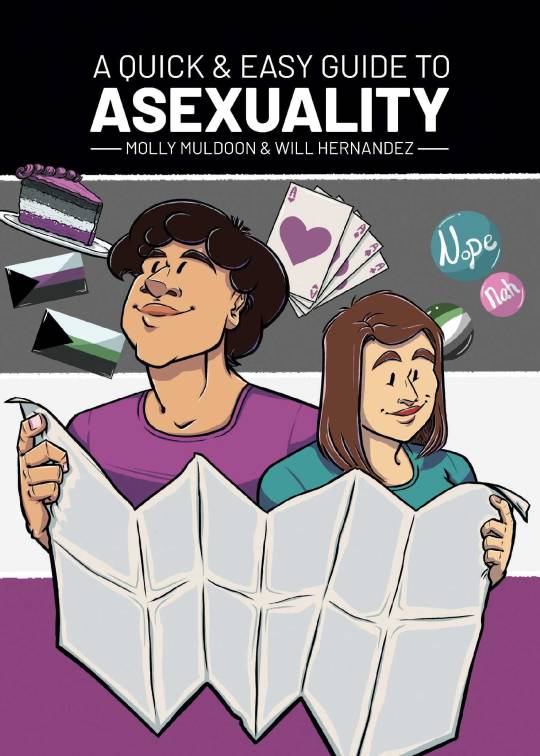
How to Be Ace: A Memoir of Growing Up Asexual by Rebecca Burgess
In this brave, hilarious and empowering graphic memoir, we follow Rebecca as they navigate a culture obsessed with sex—from being bullied at school and trying to fit in with friends, to forcing themself into relationships and experiencing anxiety and OCD—before coming to understand and embrace their asexual identity.
A Quick & Easy Guide to Asexuality by Molly Mulldoon and Will Hernandez
Writer Molly Muldoon and cartoonist Will Hernandez, both in the ace community, are here to shed light on society’s misconceptions of asexuality and what being ace is really like. This book is for anyone who wants to learn about asexuality, and for Ace people themselves, to validate their experiences. Asexuality is a real identity and it’s time the world recognizes it. Here’s to being invisible no more!


Asexualities: Feminist and Queer Perspectives edited by Karli June Cerankowski and Megan Milks
As the first book-length collection of critical essays ever produced on the topic of asexuality, this book serves as a foundational text in a growing field of study. It also aims to reshape the directions of feminist and queer studies, and to radically alter popular conceptions of sex and desire. Including units addressing theories of asexual orientation; the politics of asexuality; asexuality in media culture; masculinity and asexuality; health, disability, and medicalization; and asexual literary theory, Asexualities will be of interest to scholars and students in sexuality, gender, sociology, cultural studies, disability studies, and media culture.
Refusing Compulsory Sexuality: A Black Asexual Lens on Our Sex-Obsessed Culture by Sherronda J. Brown
In this exploration of what it means to be Black and asexual in America today, Sherronda J. Brown offers new perspectives on asexuality. She takes an incisive look at how anti-Blackness, white supremacy, patriarchy, heteronormativity, and capitalism enact harm against asexual people, contextualizing acephobia within a racial framework in the first book of its kind. A necessary and unapologetic reclamation, Refusing Compulsory Sexuality is smart, timely, and an essential read for asexuals, aromantics, queer readers, and anyone looking to better understand sexual politics in America.
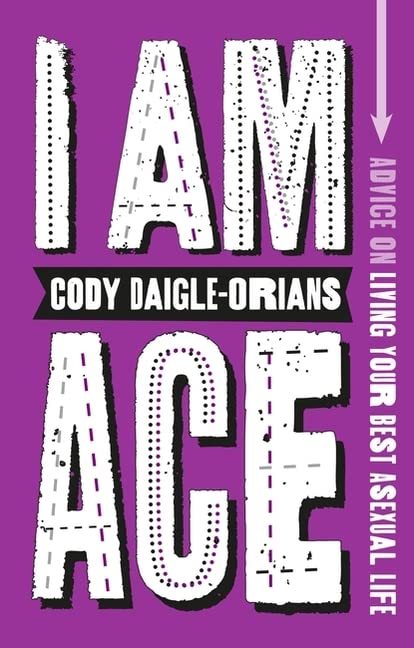

I Am Ace: Advice on Living Your Best Asexual Life by Cody Daigle-Orians
Within these pages lie all the advice you need as a questioning ace teen. Tackling everything from what asexuality is, the asexual spectrum and tips on coming out, to intimacy, relationships, acephobia and finding joy, this guide will help you better understand your asexual identity alongside deeply relatable anecdotes drawn from Cody's personal experience. Whether you are ace, demi, gray-ace or not sure yet, this book will give you the courage and confidence to embrace your authentic self and live your best ace life.
Ace Voices: What it Means to Be Asexual, Aromantic, Demi or Grey-Ace by Eris Young
Drawing upon interviews with a wide range of people across the asexual spectrum, Eris Young is here to take you on an empowering, enriching journey through the rich multitudes of asexual life. With chapters spanning everything from dating, relationships and sex, to mental and emotional health, family, community and joy, the inspirational stories and personal experiences within these pages speak to aces living and loving in unique ways. Find support amongst the diverse narratives of aces sex-repulsed and sex-favourable, alongside voices exploring what it means to be black and ace, to be queer and ace, or ace and multi-partnered - and use it as a springboard for your own ace growth.
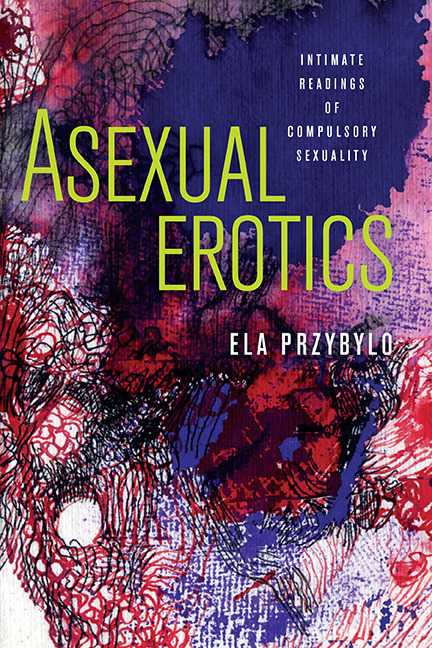

Asexual Erotics: Intimate Readings of Compulsory Sexuality by Ela Przybylo
Through a wide-ranging analysis of pivotal queer, feminist, and anti-racist movements; television and film; art and photography; and fiction, nonfiction, and theoretical texts, each chapter explores asexual erotics and demonstrates how asexuality has been vital to the formulation of intimate ways of knowing and being. Asexual Erotics assembles a compendium of asexual possibilities that speaks against the centralization of sex and sexuality, asking that we consider the ways in which compulsory sexuality is detrimental not only to asexual and nonsexual people but to all.
Ace Notes by Michele Kirichanskaya
As an ace or questioning person in an oh-so-allo world, you're probably in desperate need of a cheat sheet. Covering everything from coming out, explaining asexuality and understanding different types of attraction, to marriage, relationships, sex, consent, gatekeeping, religion, ace culture and more, this is the ultimate arsenal for whatever the allo world throws at you.


Ace and Aro Journeys: A Guide to Embracing Your Asexual or Aromantic Identity by The Ace and Aro Advocacy Project
Join the The Ace and Aro Advocacy Project (TAAAP) for a deep dive into the process of discovering and embracing your ace and aro identities. Empower yourself to explore the nuances of your identity, find and develop support networks, explore different kinds of partnership, come out to your communities and find real joy within. Combining a rigorous exploration of identity and sexuality models with hundreds of candid and poignant testimonials - this companion vouches for your personal truth, wherever you lie on the aspec spectrum.
Sounds Fake But Okay: An Asexual and Aromantic Perspective on Love, Relationships, Sex, and Pretty Much Anything Else by Sarah Costello and Kayla Kaszyca
Drawing on Sarah and Kayla's personal stories, and those of aspec friends all over the world, prepare to explore your microlabels, investigate different models of partnership, delve into the intersection of gender norms and compulsory sexuality and reconsider the meaning of sex - when allosexual attraction is out of the equation.
2K notes
·
View notes
Text
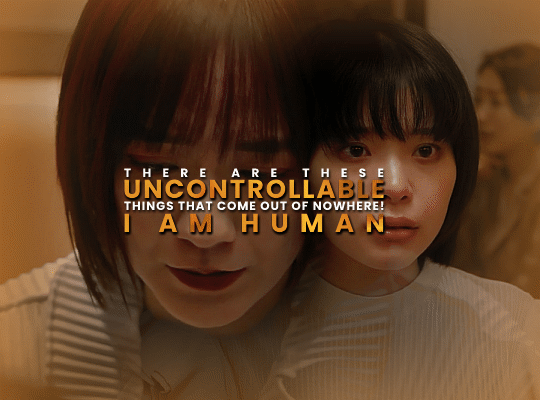


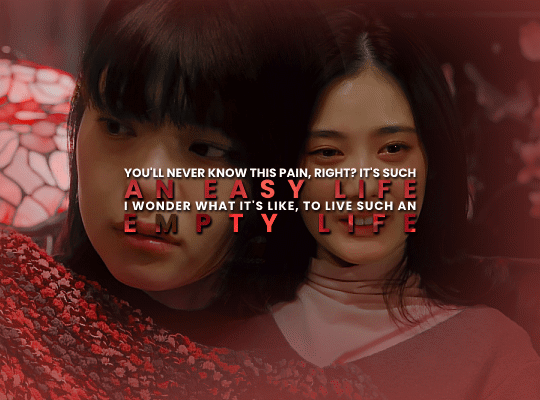
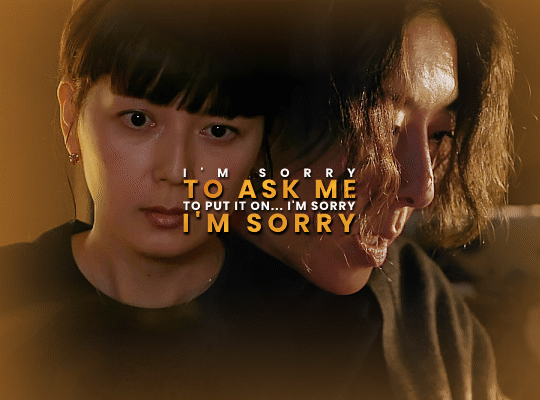

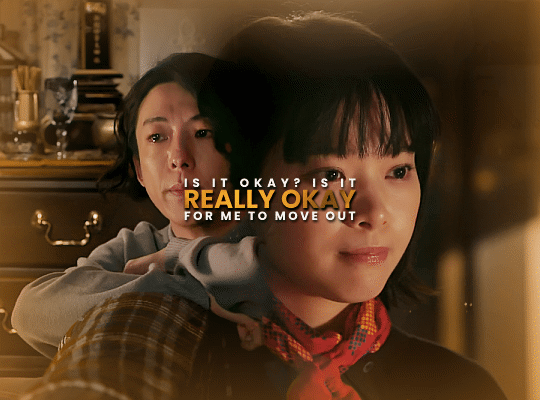
@userdramas event 08: heat
— conflicts in koisenu futari + warm colours
"What do you mean by being "normally happy"? Tell me what does a "normal family" mean?"
226 notes
·
View notes
Text
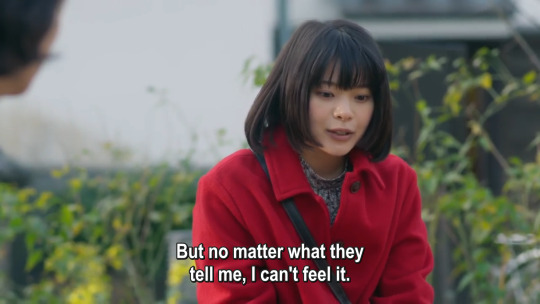
this whole scene was so relatable. as an aromantic who sometimes gets crushes (well, i haven't had one since high school), i can understand that well enough. i know what it feels like to crush on someone. but the pain of it? that's so foreign to me. i don't understand being stuck on someone, or really liking someone that way. whenever i wanted to stop crushing on someone i could just do it, it was like turning off a switch in my head 🥲
so i can't relate AT ALL to this stuff, which sometimes makes it hard to be sympathetic or comforting... that's why i'm the dump him friend
104 notes
·
View notes
Text
"that character isn't aromantic" actually they are because i'm aromantic and i said that they are. hope this helps
8K notes
·
View notes
Text
I think what’s so annoying about “love” to me, as a loveless aromantic, is how it’s used as a justification for behavior that no one would excuse otherwise. It’s the same with more emotions, but it boils down to “I love you (more than you love me)”, so it’s okay for me to act like this - you’re always the villain. I’m allowed to ignore your boundaries because I love you, because I care about you, because I know best. I’m allowed to disrespect you, talk behind your back, and make you the butt of any joke because “you know I love you, right?”
It doesn’t matter if you don’t like it or if it makes you uncomfortable - I’m your parent, your friend, your lover - I obviously care about you, so why should I have to prove it? Why should I put effort into what you want when I already love you so much?
26 notes
·
View notes
Text
once again beginning this with a disclaimer that i experience disorganized thinking and i dont think my wording really does justice to the thoughts i have on this topic, but im doing my best here, so my hot take of the day is i dont think its the most important thing in the world to tease out aromanticism and asexuality from trauma responses, and i think that trying to fit everything into boxes can cause more distress than it soothes.
i am NOT saying one shouldnt address trauma and work to heal from it. that is incredibly important and i will always be a loud supporter of healing from trauma and supporting trauma survivors. i am ALSO not saying that being aspec is inherently tied to trauma - aromanticism and asexuality are completely normal aspects of existence and they dont need to be tied to a "reason", just the same as any other queer identity.
personally speaking: i have a lot of trauma around intimate relationships. i am also on both the aromantic and asexual spectrums. looking back at my childhood, i think those aspec identities have always been a part of me, but i also have no way to know for sure if my trauma has amplified them. am i (usually, not always) deeply uncomfortable with and even afraid of people being attracted to me because of my intrinsic lack of reciprocation, or is it because of the way ive been hurt by people who were attracted to me? is my degree of romance- and sex-repulsion inherent to my being or a result of trauma? trick questions! the answers are unknowable and i dont have the time or energy to keep trying to know.
the unfortunate truth of trauma is that no matter how much you heal, no matter how far past it you move, traumatic events will always be a part of your personal history. i dont know if ive ever heard of a single person who can go back to who they were before a traumatic event. and especially when that trauma occurs during youth, its going to have an impact on the way your brain functions, the way you maneuver through life, and that includes intimate relationships. and thats okay! the goal with trauma treatment shouldnt be some lofty aspiration of forgetting what you went through, it should be learning how to manage the effects of your trauma, learning how to continue to find joy in life and minimize the hurt from what happened to you, and learning how to handle the situations when you DO feel that hurt.
and personally, it helps me more to embrace my aromanticism and asexuality and celebrate those parts of my identity, rather than treating them as symptoms of trauma and trying to force myself to engage in relationships that only end up hurting me worse. it does not serve me to constantly question whether my feelings on romance and sex are intrinsic or caused by external factors, because that isn't going to change those feelings and i dont really WANT to change those feelings. if treating my trauma leads to me no longer identifying as aspec, then thats cool, but its not what im seeking out. if i try to force myself to be allo, i will only further traumatize myself.
its okay to be traumatized. its okay to be aspec. its okay to be both. its okay to not where one ends and the other begins. its okay if you dont CARE where the boundary lies, as long as youre doing what you need to to take care of yourself. its okay to use aro and ace labels if you feel like they describe you, and its okay to stop using those labels if they stop benefitting you. its cool. its chill. focus on your own comfort and boundaries and happiness, and do what you need to do for your own wellbeing.
5 notes
·
View notes
Text

I started Koisenu Futari, it's cute and fun, you should give it a try
70 notes
·
View notes
Text
As much as Koisenu Futari is a show about love, or the lack thereof, it also does show how it can show up in many ways.
The focus is aromanticism and asexuality, yes, but also, we see the different points of view of the people around and how they relate to those types of love.
We have the junior, who thought that there was a spark between them and instead of dealing with the rejection and misunderstanding like a man he just... took some time off work and asked to change departments.
We have Minori (the sister) who seems to live the perfect romantic life and is following what society (and her parents) ask of her, and at the end, despite her love and her dutiful follow of those rules, she's being cheated on and breaks from what society demands (the divorce).
We have Kazu, who sees romantic love in a very weird lense (in my opinion) but slowly, while still holding his ideals, he understands that others are not necessarily like him and not only he ends up by respecting them and more or less understanding them, but he also is a (somewhat) good ally.
We have Chizuru, who does love but is lesbian. She is bound (through her love for Sakuko) to suffer because of a love that cannot be reciprocated. We see her deeply love and feel, and yet we do not see this love being satisfied.
A good point here is that the blame is not brought to Sakuko. Chizuru clearly says that she, herself, is the one to love and the one to get away because she rather have a friend live her life without having to worry about something she doesn't care about than forcing an unwanted love on her (Sakuko).
We have Sakuko's parents too, who seem to live the perfect traditional life. The mother doesn't seem too old, which would suggest that she followed the advice she gave to her daughters: marry and have children young. And through the series, she shows rejection, because aromanticism doesn't fit her understanding of life, then a slight acceptation: she still doesn't get it and wishes for Sakuko to marry and have children, but she also understands that cutting ties with her daughter for not accepting her making her own choices is stupid at worse, foolish at best, especially since at the end she just wants her daughter to be happy.
Last but not least, we have Takahashi. He is the textbook of "older queer" as in he knows where he stands, he understands how he feels about what, he has a way to show and share his experience to others (the blog), he clearly is used (and bored/annoyed) by the world's romanticism etc and he had cut ties with his parents. We don't have much on the parents' thing, but, or he left them because he couldn't be bothered with them being such a pain, or his parents rejected him because he's aroace. Either way, he is a pillar for Sakuko while she goes through her own aroace journey.
So at the end, we not only have a show about aromanticism and asexuality, but we also see how this pressure, this allocisheteronormativity of society, makes it hard on everyone and not just those who do not fit/do not follow those invisible rules.
The aroace narrative is wholesome and very well done, but it would be foolish to turn a blind eye on those other details (and growth) of the characters, which makes this series punch you in the gut to hard.
124 notes
·
View notes
Text

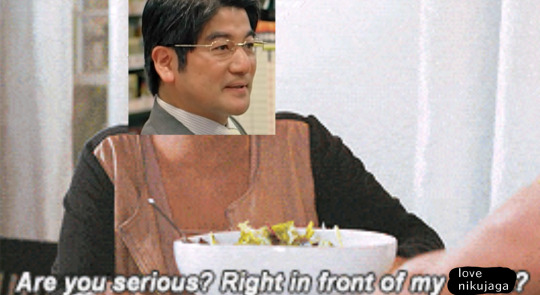
this doesnt fit in context at all but the phrasing of it made me laugh
#this is great#can also see takanashi @ing the manager#are u serious?? amatonormanitvity in front of my produce section?
39 notes
·
View notes
